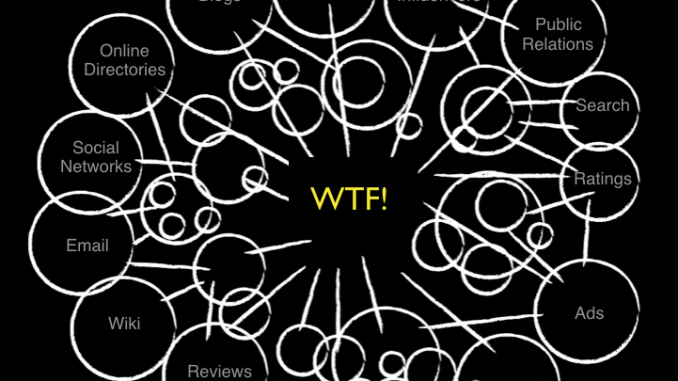
There’s a lot of things to consider when it comes to digital marketing. What works and what doesn’t is constantly shifting. The most popular things to do are not always the best things to do. The most important thing is to keep the important thing the important thing. What that thing is will depend on your particular situation, however, some things are more important than others.
OVERRATED Digital Marketing Tactics
- Social media content for the sake of activity.
Too much time is spent by marketers creating content on social media that is of little value. Being busy is not the same thing as being productive. If the social content is not informative or entertaining for your target audience then it’s wasted effort. Be strategic with your social media as opposed to just being social. Your social content should be showcasing your expertise and providing your audience value.
- Advertising only on social media platforms.
It’s true that social media platforms like Facebook, Instagram and TikTok attract a lot of eyeballs and they should be considerations for your media mix. However, if you focus solely on social media platforms you may be ignoring other options where your audience is more concentrated and cheaper to reach. Do some research or use a media buyer to propose a plan that includes more options. Google ads, YouTube, premium display networks, and industry websites/blogs are examples.
- Always emphasizing brand awareness.
Showing how your logo looks in a boat, on a goat, or sponsoring a parade float does little to help customers take note. Digital marketing should have advertising and assets for all stages of the customer journey (awareness, consideration, and purchase). Get creative regarding the types of offers that may resonate with people depending on where they are in the decision process: Awareness = Press Release, Consideration = Whitepaper, Purchase = Coupon.
UNDERRATED Digital Marketing Topics
- Keyword optimized content.
More important than creating good content is knowing what content to create. Doing research on the keywords your industry uses or you want to be known for should guide content development. Search engines are always seeking to index valuable, new content. That said, search engines do not index every piece of content on the internet. Your content needs to showcase expertise, originality, and be well written. In addition, make it parsable with headings, bullet points, and summaries so search engines can pull snippets directly into search results.
- Analytics and attribution.
Regularly investigate your most visited web pages and search queries that lead people to your website. If you’re using Google Analytics then be sure to make use of Events and Goals so you can dig into what actions people are taking, what sources led them to your website, and how often they’re converting. This data can then be used to optimize content, evaluate acquisition sources, and reduce friction for conversions. Information is power.
- Conversion optimization
Ensuring your website provides a good user experience is equally important as the content it contains. There’s no point driving traffic to your website if the destination is sub-standard or cumbersome for inquiries. Improving the conversion experience can be cheaper and more impactful than paying for more traffic. Instead of being an online brochure, turn your website into a sales tool – Incorporate multiple ways for making contact, ask for emails in return for valuable content, add interactive tools for assessment, offer a free trial, etc.
RELATED POSTS

Leave a Reply